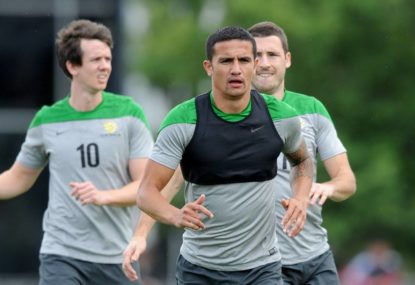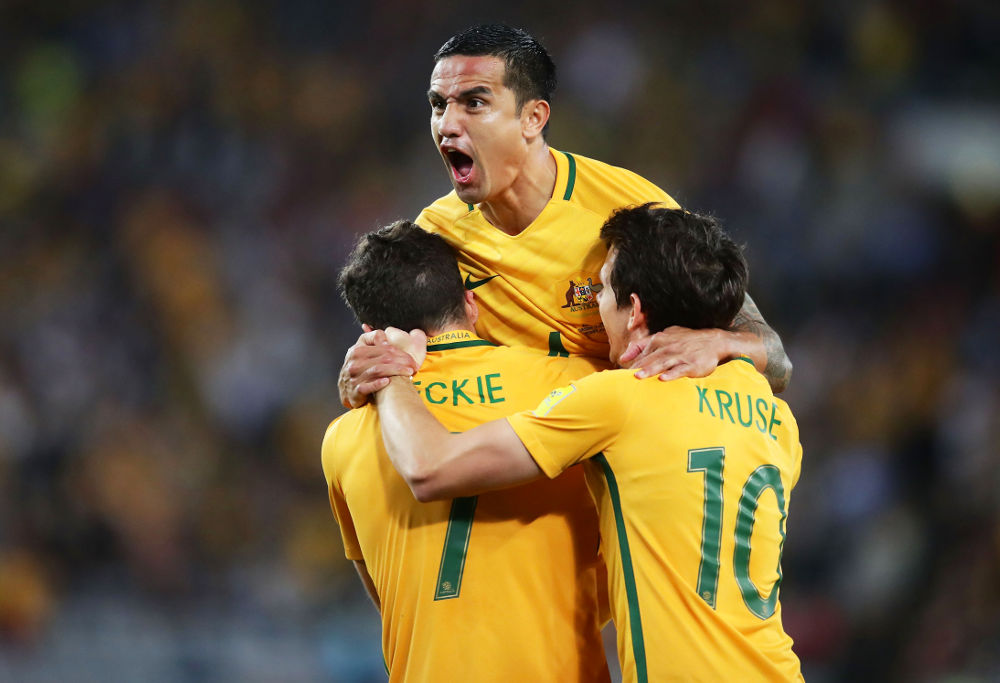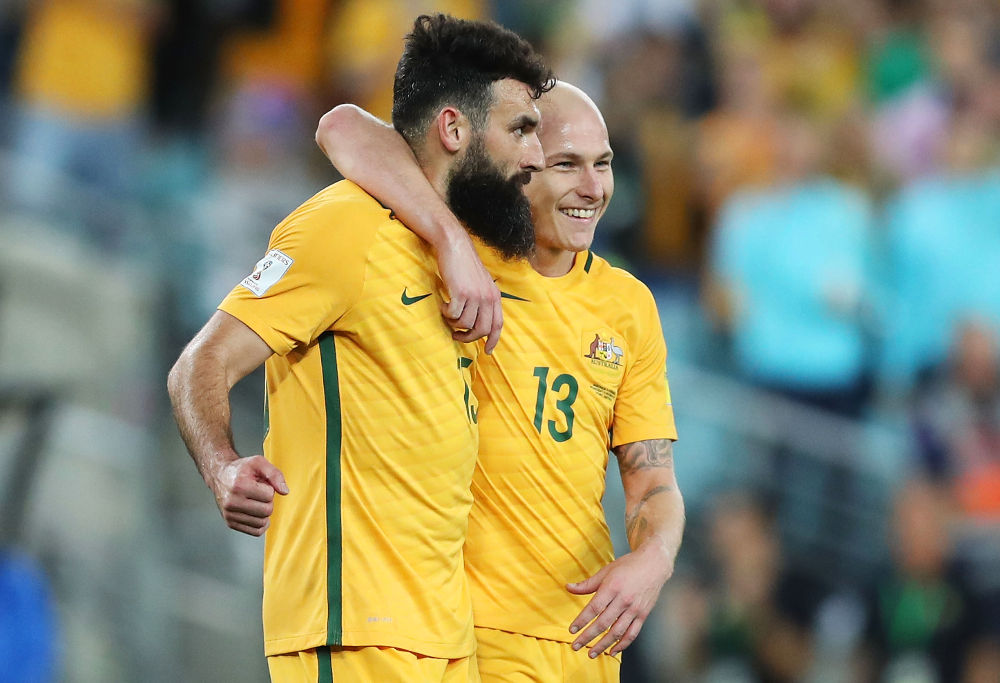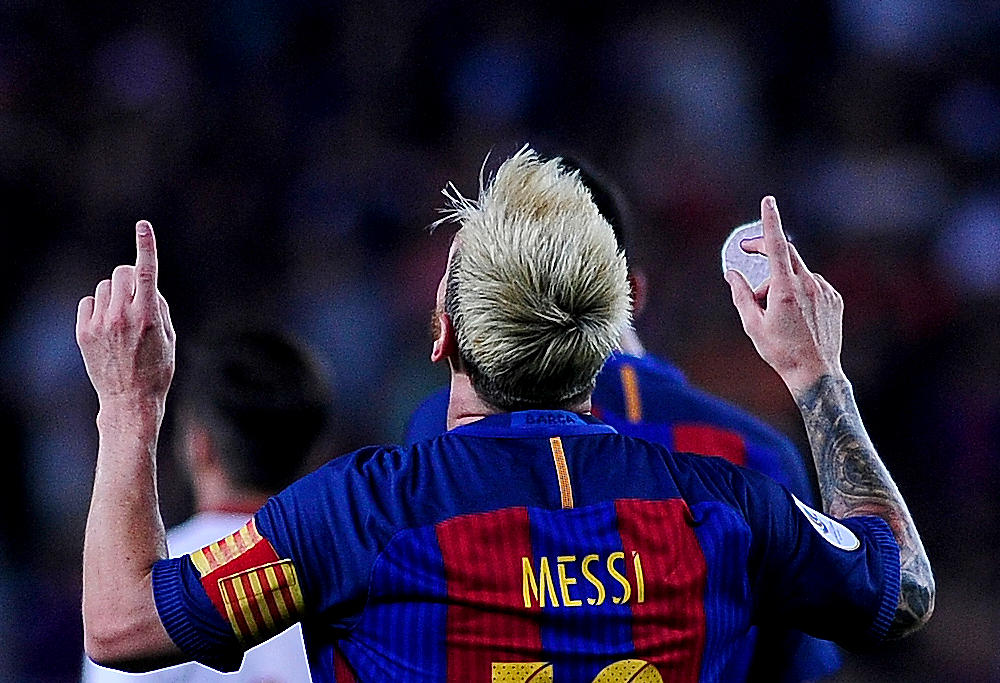Phillip Gorgo
new author
Roar Rookie

Three years old. That’s how old I was when my love for football started. That’s how old I was when I decided to devote my spare time to the game.
That’s how old I was when I’d chosen a team to support and dream of one day playing for.
I remember, due to the time difference, waking up at 1am just to watch Australia play. Putting on my jersey, bizarrely thinking that wearing the oversized jersey my Dad bought online would be the difference between winning and losing.
I remember crashing my way through the house to my parent’s room, not caring that they had work the following morning, and proceed to drag my Dad out of the warmth of his bed just to watch the game.
I remember the overwhelming elation I would feel coursing through me as my team scored, a feeling that could only be expressed through the action of waking up my entire neighbourhood with one ear-piercing roar of excitement.
I remember thinking that one day my brother and I would play side-by-side on that field for Australia, and win the World Cup. Twelve years old, that’s how old I was when I realised the failure that was the Australian football system.
Once again Australia had qualified for the World Cup (2014), and once again we didn’t make it very far.
We were in Group B, which consisted of us (Australia), Spain, Chile, and the Netherlands. We didn’t win once and were immediately knocked out of the World Cup.

(Photo by Matt King/Getty Images)
Year after year Australia would play against international teams, and year after year we would lose or draw at best. Our gladiatorial style of football was outdated, and this was becoming very evident.
When we draw with teams like Saudi Arabia, Japan, Thailand, Iraq and Honduras, I shouldn’t be feeling relieved that we didn’t lose, I should be feeling frustration that we didn’t win. How do we hope of competing against the international powerhouses of Europe if we can’t hold our own against these teams?
Rely on Cahill for another decade or maybe bring John Aloisi out of retirement to score a last minute penalty to save us? Australia cannot compete internationally and it all begins with the coaching.
A quick skim through the history of football will show the key to having a winning team is playing a style of football that relies heavily on passing, moving and technical players. This style is referred to as Tiki-Taka, and is used by some of the best teams to have ever played.
These include Pep Guardiola’s Barcelona, Man city and Bayern Munich , Rafa Benitez’s Liverpool, the Spanish international team in 2010 and many more. The problem with Australia is their stubbornness or ignorance to stick with the belief that a strong/fast player is better than a smart one.
This stems from the culture created in Australian sports.
Australia’s coaches have been indoctrinated with the gladiatorial culture of Australian sports. Our coaches tend to snub there noses at intellect and prowess, preferring the brute who powers through difficulties with sheer physical exertion.
Our coaches are entrenched in this culture, which leads them to choose these players in our national team, and encourage them to play with a very physical and imprudent style of football.
This style of football is outdated and can’t compete with the finesse and skill of the style of Tiki-Taka.
A team playing physically like Australia versus a team playing Tiki-Taka in a football game, is like the first fight in the movie Rocky, where Rocky fights Apollo Creed.
The brute force and sheer will of Rocky allows him to fight valiantly and he proves a challenge for the champ, however, he is ultimately defeated through the finesse and skill of Apollo.
Australian football can be put simply, as a mechanic that has both the heart and the tools but chooses to leave his toolbox in the shed before going to work.

(Photo by Mark Metcalfe/Getty Images)
Tiki-Taka is a style of football that is unrivalled, and somehow always finds a way to win.
When Pep Guardiola, the coach known for the Tiki-Taka style of football, entered the English Premier League in 2016, almost every single analyst claimed that ‘He stands no chance due to the pace of the Premier League’. They said that ‘His style of football can’t compete with the physicality of the English League’.
Skip to the 2017-18 season, and Pep’s team is 13 points above second place and at one point won 33 games in a row.
In addition to this, not only is the style of football being taught incorrectly, but so is the way players are trained from a young age. Due to Australia’s inveterate style, from the beginning players are taught physicality above skill.
Drills are created with the intent to teach a player how to run, hit, and score as opposed to pass, move and dribble (fundamentals of football).
Due to this philosophy, Australian footballers coming out of the youth systems all rely on speed and strength to compete internationally, but no technical abilities. We create an exact copy of each player for almost every position.
It’s equivalent to cooking the same medium-rare steak over and over again but just changing the side of chips to a side of salad. It’s monotonous and I’m sick of it!
The main problem with this is a strong footballer loses to a intelligent and skilled one. Again this has been showcased in football today with the famous player Lionel Messi.
Messi stands 1.7m tall and weighs 76kg, yet despite these facts he is regarded by many to be the greatest player in football history having won five Ballon D’ors.

(Photo by Joan Cros Garcia/Corbis via Getty Images)
Messi’s technical ability is unmatched and he beats every opponent he faces, why? because brains beats braun or in football’s case, technique beats speed and strength.
Australia perceives the perfect athlete to be that of a gladiator, someone who runs, hits and fights, someone resembling that of a rugby player. Australian coaches prefer a player who can tackle the opponent and get the ball, rather than pass, dribble and score. They prefer sheer power and a level of brutality over technique and finesse.
I once saw my national team walk onto the pitch like a group of footballers, now all I see is a platoon of warriors marching in rank. This is why we cannot compete internationally, because our coaches prefer a rugby player to a football player.